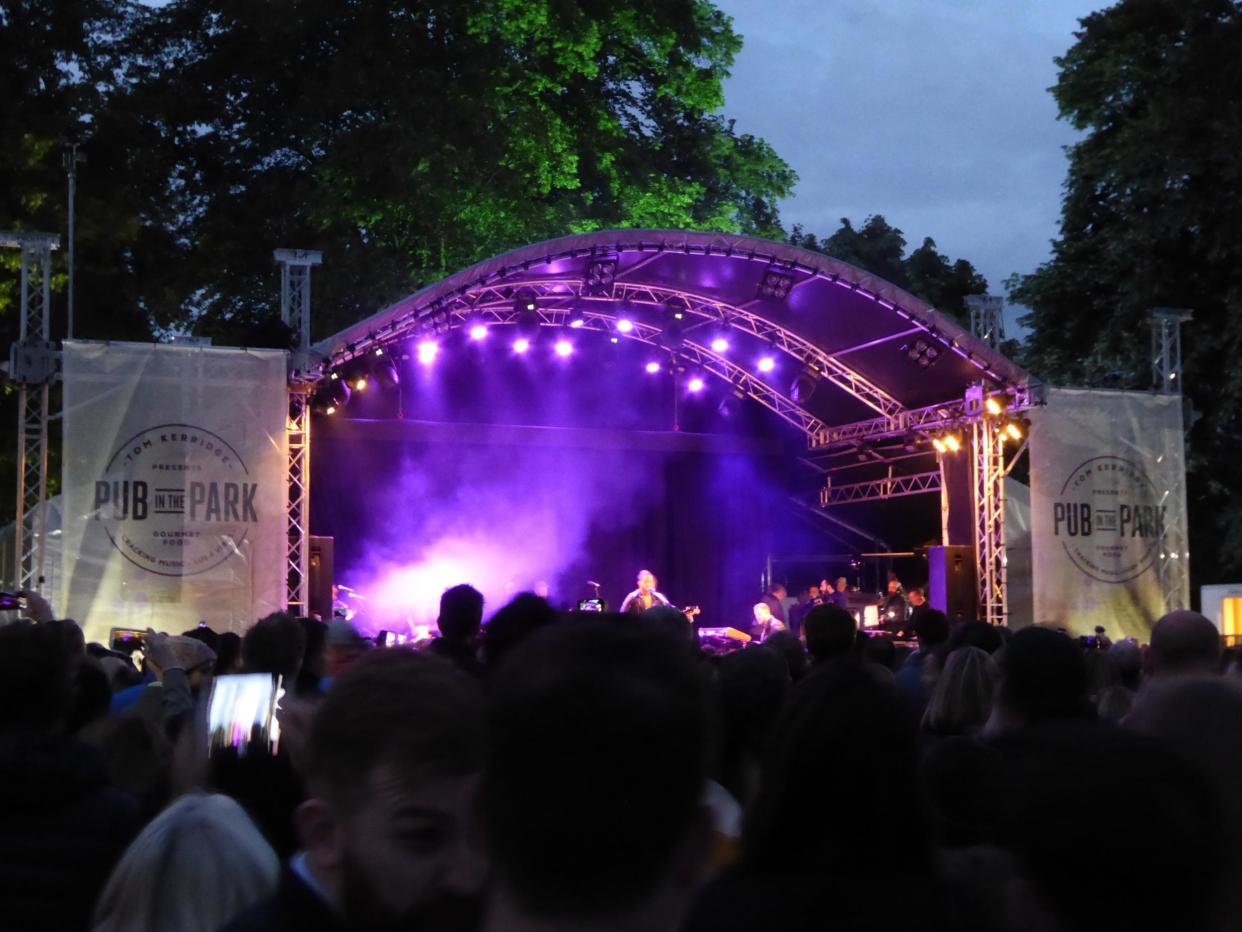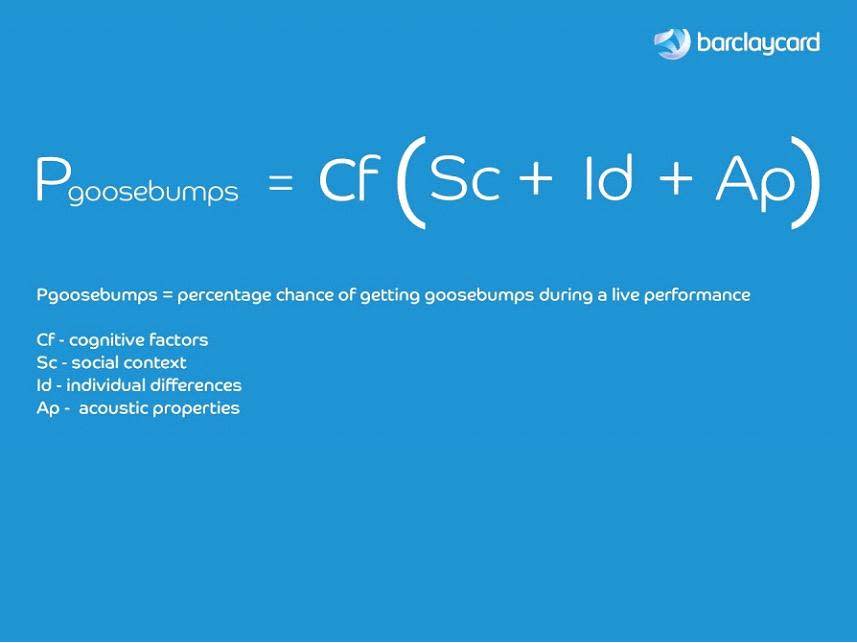Why live music gives you goosebumps revealed in new study

Experts have discovered why live music gives you goosebumps, and it’s partly to do with the meaning of a song – and the volume.
Matthew Sachs, a researcher from Harvard University, reached the conclusion after combining the results of his experiment with existing studies on the same subject.
Mr Sachs monitored the heart rates and skin conductance of subjects who listened to three of their favourite pieces of music.
Intensity of lyrics, rising pitch, harmonic intervals and collective crowd singing emerged as the key factors in giving people goosebumps.
Using this information, Mr Sachs created an equation: Pgoosebumps = CF (Sc + Id+Ap).

"CF" recognises the cognitive factors and "Sc" is the social and environmental context such as the collective experience.
"Id" stands for the individual differences such as the engagement with the music and "Ap" is the music’s acoustic properties, or the rapid increase or decrease in volume.
"Pgoosebumps" is the percentage chance of getting goosebumps
Mr Sachs said: ‘’Many studies have attempted to investigate what causes the emotion we feel while listening to music, but these have typically taken place in a lab setting.
‘’We’ve never before been able to explore how multiple factors influence the likelihood of experiencing goosebumps in a real-world context.
‘’It’s hugely exciting to be able to explore the physiological correlates of aesthetic emotions for the first time during live performances this summer.”
Barclaycard also carried out a survey to accompany the study.
The results show seven in 10 British people think goosebumps are a marker of a great live performance, but only 16 per cent understand where the physiological phenomenon comes from.
The majority of British people think getting goosebumps is the top sign of a great live entertainment experience.
The emotional effect of a live music experience is enhanced by being among friends (41 per cent), singing along with the crowd (41 per cent) and watching your favourite artist perform (40 per cent).
The research also revealed while 71 per cent of Brits have experienced chills during live entertainment, 13 per cent incorrectly believe romantic attraction is actually the key cause of goosebumps – with almost one in 10 putting the sensation down to simply feeling cold.
Although 60 per cent of British people associate goosebumps with the feeling of excitement, the new theory suggests a personal relevance to the song, collective crowd experience and a rapid increase or decrease in volume are more important when it comes to causing goosebumps.
Time of day is also a significant factor, with over half of respondents feeling more goosebumps after 5pm than at any other time during a live music performance, with the optimum time for a goosebump moment identified as 6.37pm.
Rock music was voted the genre most expected to cause goosebumps (31 per cent), followed by pop (29 per cent) and Indie (seven per cent).
House tunes (six per cent) and classical symphonies (five per cent) complete the top five.
Some British people believe watching their favourite band perform (28 per cent) is more likely to create goosebumps than getting married (27 per cent), with only the sight of their new born child expected to create a greater goosebump-inducing moment (40 per cent).
A tenth of respondents admit their most treasured memory of a great live music experience includes their ex-partner or someone they used to date (11 per cent).
Die-hard fans don’t need anyone by their side, with five per cent enjoying their best live music experience while on their own.
This summer, Mr Sachs, alongside a team of researchers, will conduct a physiological study on-site at two UK music festivals.
The test will monitor and evaluate fans’ physiological responses to music in a live festival setting, while qualitative metrics will also measure emotional responses.
SWNS

 Yahoo News
Yahoo News 
